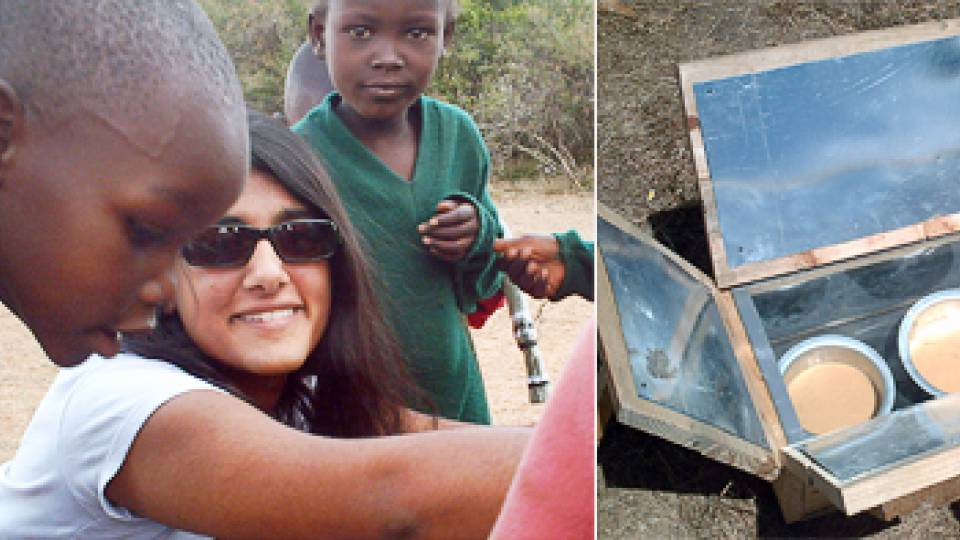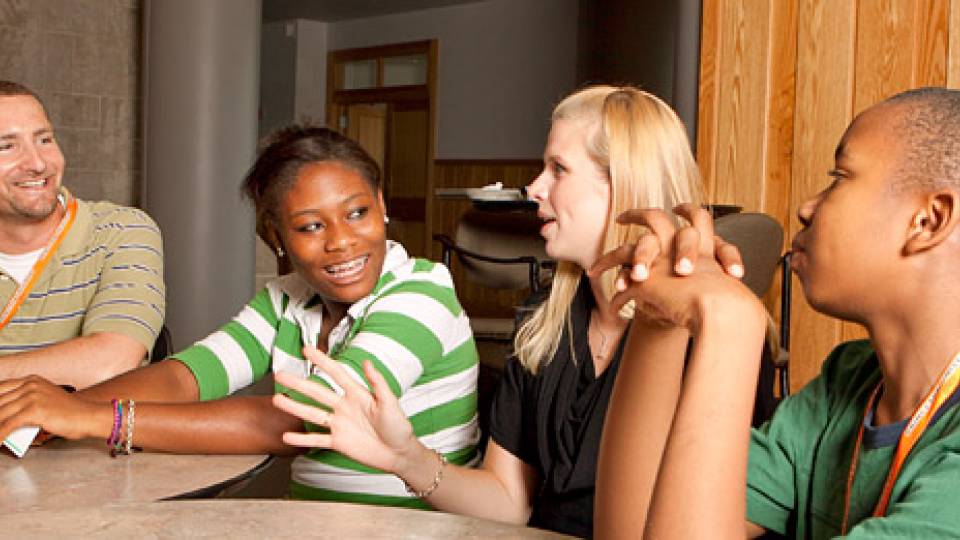From the Oct. 1, 2007, Princeton Weekly Bulletin
After growing up in an affluent neighborhood, Wendy Kopp arrived at Princeton unaware of the deficient schooling some of her peers had overcome to attend the University. By the time she graduated in 1989, however, Kopp was aware of these inequalities — and determined to reverse them. At age 21, she launched Teach for America to train teachers to work in low-income communities.
Kopp and four Princeton seniors recently addressed members of the class of 2011 on the many ways they could serve society — through student groups or through academic work; locally, nationally or internationally. "Reflections on Service," a new part of freshman orientation held Sept. 13 in Dillon Gymnasium, attracted more than 450 students.
Kopp advised students to learn firsthand about disparities in opportunity that become the source of societal problems.
"Expose yourself to the inequities you might not know [about] and try to truly make an impact against them. … You actually have time, if you start now and really focus not only on serving, but really thinking about what we can do to truly solve these problems," she said.
When she was an undergraduate, Kopp said, she noticed the difference in academic success between her roommate from the South Bronx and students educated at preparatory schools. Her observations led her to write her senior thesis on a national teaching corps, and she formed Teach for America immediately after graduation. The organization has been immensely successful — growing from training 489 students the first year to having 12,000 alumni today — and Kopp stressed that participating in education is critical for addressing broader problems facing low-income areas.
"We need leaders in really every sector, working from the inside of education, working in every realm of policy, in business, in journalism, in medicine, health … who understand and have the deep conviction that comes when you've taught successfully in a low-income community," she said. "I truly believe our policies would be different, our societal practices would be different, our very priorities would be different, if that were the case."
The other speakers were seniors Anna Almore, an English major who has hosted more than 600 students on Princeton's campus to inspire them to attend college; Ashley Johnson, a classics major who spent two summers in rural China with the Summer of Service English immersion program; Benjamin Bernstein, an economics major who mentors local youth through Community House programs; and Ishani Sud, a chemical engineering major who is involved with multiple projects, including developing a low-cost solar oven and traveling to Kenya and Tanzania to educate people on its use.
"I thought they were all so accomplished," said freshman Casey Boyles. "All of what was said was pretty inspirational. To take a senior thesis and make it a major organization you're the CEO of is pretty amazing."
Based on Bernstein's remarks, freshman Kunal Nayyar decided he would look into a program called Generation One that helps local high school students achieve academic success. "It showed me all the things you can do here," Nayyar said.
"Reflections on Service" was realized after two years of efforts by students to develop a service-focused program for freshman orientation. The student-run Pace Council on Civic Values took over the effort in February.
"The freshman orientation program didn't include an event that demonstrates that engagement is not only important, but also possible," council member Josh Loehrer, a senior, said. "Yet it's integral to most students' careers at Princeton."
The council received funding and support from the Office of the Dean of Undergraduate Students and the Pace Center. Phil Martin, a senior program coordinator at the Pace Center, called the event "a great example of students, administrators and folks off campus working together to make an important student-driven project a success." In addition to support from student groups and administrators across campus, the owners of Halo Farm provided food for an ice cream social, where freshmen talked to older students about civic engagement opportunities.
Organizers said they hoped the discussion would continue in years to come.
"Princeton students like those featured in the panel are making a significant impact right here in Princeton and around the world," said senior Meaghan Petersack. "Introducing freshmen to these models and encouraging them to explore the many opportunities they have as students and alumni to make a similar impact is pivotal for inspiring and strengthening the next generation of civic leaders."




